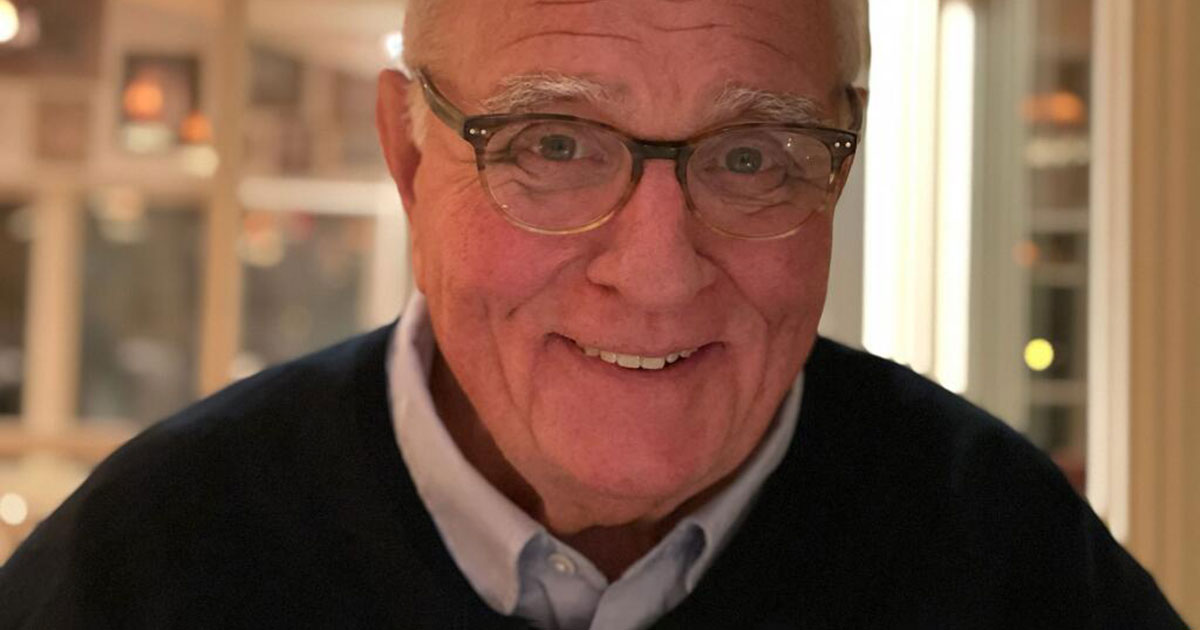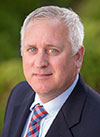
Sept. 15, 2021 – Almost three decades ago, in 1992, Tom Sleik became president of the State Bar of Wisconsin during a tumultuous time. As an organization itself, the State Bar was grappling with its own identity. As a society, tensions were high.
Several months before Sleik took office, Rodney King, a Black man, was the victim of police brutality in Los Angeles. Caught on video, riots erupted when the officers involved were acquitted, igniting national conversations about racial justice that continue today.
Sleik called on the lawyers of Wisconsin to band together. “[W]e have kept the light of hope alive even during the recent period of darkness for our nation in Los Angeles, Atlanta and other cities,” Sleik
wrote in July of 1992 in
Wisconsin Lawyer.
“Your continued commitment will bring hope to the downtrodden, the weak, the ignored, the poor,” said Sleik, an attorney in La Crosse. “You should not doubt your worth to our democracy no matter who belittles the role of lawyers in a free society.”
Sleik, who celebrates 50 years as a member of the State Bar of Wisconsin, also participated in debates concerning the bar’s status as a voluntary or mandatory organization. He believed in a unified bar, and the Wisconsin Supreme Court agreed.
But Sleik’s State Bar presidential year was just one in a long and successful career that began and endured at the La Crosse law firm of Hale, Skemp, Hanson, Skemp & Sleik.
Young Aspirations

"He's a character all right," said one of Tom Sleik's partners back in 1992, in an article for Wisconsin Lawyer. His partners explained that Sleik "uses his sense of humor as a legal asset." In these photos, taken at the start of his presidential year, Sleik has some fun.
As early as age 12, Sleik thought about becoming a lawyer. There were no lawyers in his family – his father was vice president of a brewery – but Sleik discovered an early interest in politics and learned about the role of lawyers in American democracy.
“In the late 1950s and early 60s, I could see that lawyers were becoming much more important in shaping where the political front was going,” said Sleik, born and raised in La Crosse. He went on to attend Marquette University for college and law school.
Upon graduation in 1971, he returned to La Crosse and joined the firm that is now Hale, Skemp, Hanson, Skemp & Sleik. He was a civil trial lawyer for the first part of his career.
“I had a real interest in labor law and I represented a number of companies in La Crosse in employment matters, including our local phone company which had two very lengthy strikes,” Sleik said. “That was quite an experience.”
Towards the end of his career, Sleik focused primarily on family law. As a young lawyer, he recalls the many opportunities he had to be in court, and meet other lawyers.
“It was exciting,” Sleik said. “There were maybe 200 lawyers in La Crosse when I started out, and about 100 of them regularly went to court. When I retired, there were over 400. I used to know everybody, at least those who were doing trial work.”
Getting Involved
At the midway point in his career, Sleik got involved in State Bar leadership, serving on the State Bar’s Board of Governors before becoming president in 1992.
“It was important to me to give back to the profession, which has given me so much, and to try to improve pro bono efforts and the delivery of legal services,” he said.
“One of the issues was integration of the bar, staying integrated, and the other was legal services for the poor,” he said. “Integration was an interesting subject for me because my senior partner, Quincy Hale, had been president of the State Bar in 1945-46.”
Hale, Sleik said, believed in the integrated bar in which all lawyers joined in its collective efforts to improve the legal profession and the administration of justice.
By court order, the previously integrated State Bar of Wisconsin was voluntary for a four-year period before the U.S. Supreme Court decided
Keller v. State Bar of California in 1990. The decision upheld the mandatory status of state bars with some limitations.
“Mr. Hale believed that anything that would help us as a profession was a good idea,” Sleik said. “He had a reputation as a decent man and a wonderful lawyer.”
Sleik also spent a lot of time on the issue of legal services for the indigent. Sleik was president when the State Bar created the pro bono coordinator position, responsible for the State Bar’s
pro bono program. Today, that program is thriving.
Looking Back
When Sleik started out as a trial lawyer in 1971, “trial lawyer” meant just that. “The first half of my 41-year career in practice, I had a lot of jury trials,” Sleik said, “In the second half, many more cases were dealt with through arbitration and mediation.”
One of Sleik’s most memorable cases was the time he represented a young man who had been paralyzed in an ATV accident. At the end of a three-week jury trial, the jury returned a $4 million verdict, the largest verdict in La Crosse County at the time.
 Joe Forward, Saint Louis Univ. School of Law 2010, is communications director for the State Bar of Wisconsin, Madison. He can be reached by
email or by phone at (608) 250-6161.
Joe Forward, Saint Louis Univ. School of Law 2010, is communications director for the State Bar of Wisconsin, Madison. He can be reached by
email or by phone at (608) 250-6161.
“The case dominated my life for three years,” said Sleik, who tried the case in 1990. “I spent enormous amounts of time on the case and my partners were so involved and helpful. It was just a real team-building exercise for our firm.”
After the verdict, the case was appealed to the Wisconsin Court of Appeals. “Every night after work for a month, I met with three of my partners who just grilled me, asked me every impossible question they could think of in this case.”
“By the time I got to oral argument, I’m in court thanking the judges for asking me the questions,” Sleik recalled. “My partners had prepared me for discussion of every issue the court raised. It was a wonderful oral argument. Shortly after, we settled the case.”
Another highlight for Sleik was representing the phone company in La Crosse. “It was a very arduous and difficult experience because the first strike lasted four months, then two-and-a-half years later, they went on strike again for eight months,” Sleik said.
“Sadly for the union, they were decertified of the representative for the telephone workers in La Crosse. The Reagan Administration was pushing hard against unions, and it was a difficult time for me because my politics tend to be a little bit more liberal.”
But Sleik had a duty to the telephone company, his client. “The client has a right to take its lawful position regardless of my political preferences,” he noted.
Helping Families
By the time Sleik was in the later part of his career, he realized a need in the area of family law. “There were so many people that needed help,” he said.
“When you help someone who has been in an abusive relationship obtain custody of their child, there is a certain satisfaction in doing that type of work.”
One of Sleik’s pro bono family law cases involved a Russian woman who faced deportation and the possibility that she would lose her child, who was autistic.
“It was one of those cases where I really spent an enormous amount of time,” Sleik said. “One of my partners asked me to do it and the firm committed to it because her case and cause was just, and we wanted to do the right thing.”
“I won’t tell you how much time I spent on it, but it was one of the most satisfying things in the world to have her get custody of her little boy who needed her desperately.”
A family law attorney at a competing firm joined Sleik to represent the client. “We had beat each other’s brains out for years, but it was the only case we got to work on together,” Sleik said. “And we had an enormously satisfying time working on it together.”
As a young lawyer, Sleik understood lawyers held great power to help communities, individuals, and families. “It was a great feeling to know we had the power to make the difference in this case,” he said. “It’s a case that will always stand out in my memory.”
You Might Also be Interested In …
